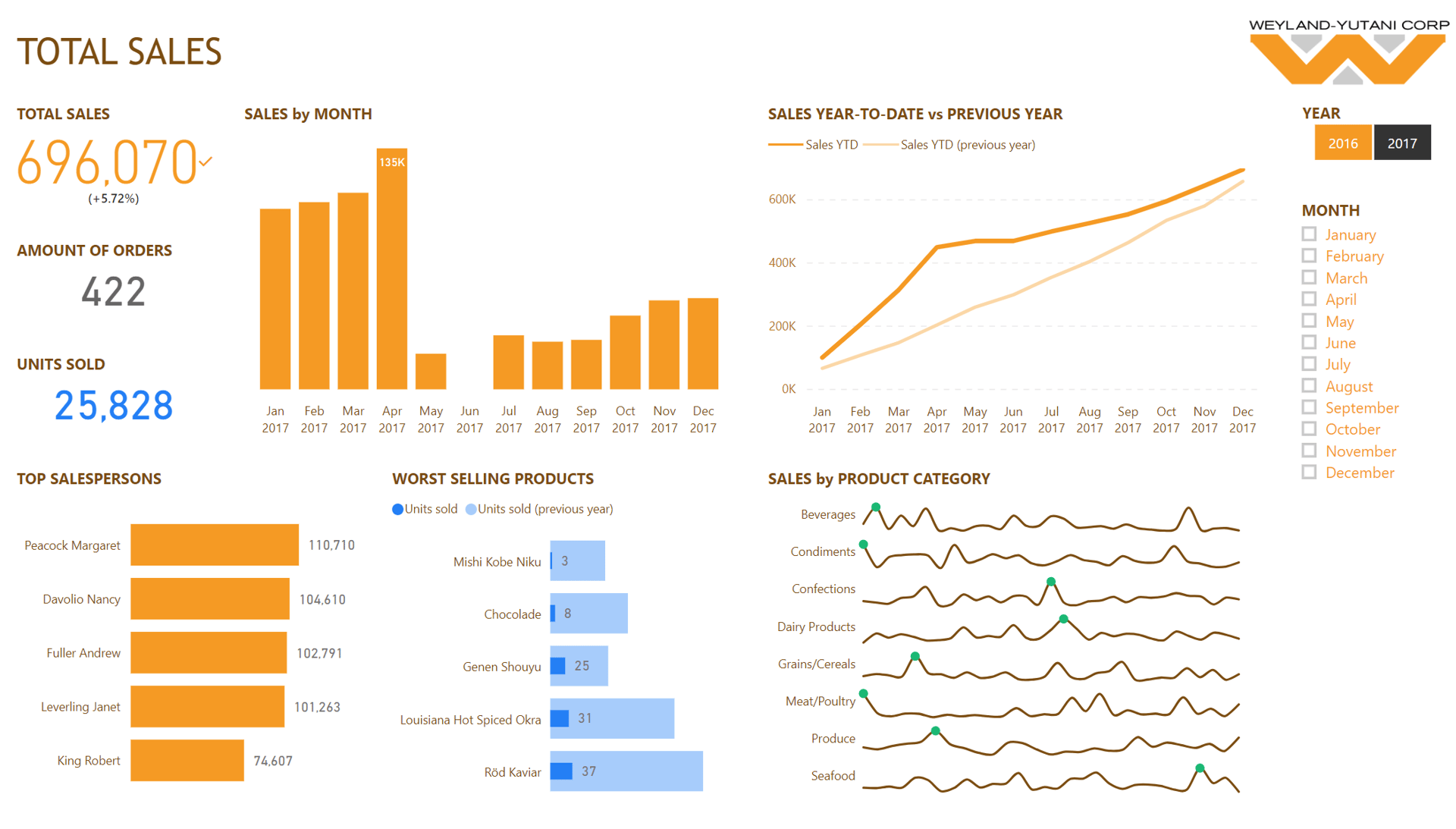 BI system converges information scattered across the different systems of a company into a single place in an easy-to-use format.
BI system converges information scattered across the different systems of a company into a single place in an easy-to-use format.
A Business Intelligence (BI) system enables knowledge-based management. It converges information scattered across the different systems of a company into a single place in an easy-to-use format. It allows efficient analysis of data across system boundaries and utilization in development of the company’s operation.
A BI System Facilitates Knowledge-based Management
A BI system is not the same as knowledge-based management, and knowledge-based management does not always require the use of a BI system.
Knowledge-based management is part of a company culture in which data are actively utilized in decision-making, company development, and creation of new services or products. Clear processes and systems are required for actual implementation of knowledge-based management.
However, in many cases, a company’s existing system infrastructure restricts data management and data are scattered throughout the company. Consequently, not enough comprehensive, accurate, and up-to-date information is available to support or implement knowledge-based management.A BI system acts as a tool allowing knowledge-based management. With the help of a BI system, up-to-date data relevant for corporate decision-making can be compiled from several sources into a format easy to interpret.
It frees up time spent on manual data compilation and significantly enhances the possibilities for data analysis and operation development.
Introduction of a BI system does not mean merely automation of the company’s current reports. It frees up time spent on manual data compilation and significantly enhances the possibilities for data analysis and operation development. The data are in an easily perceivable format and can be dug into better than ever.
The customizable user rights of a BI system allow providing each employee with the exact data required and with the possibilities for utilization of the data. A BI system also adapts to the company’s changing needs, as new data are accumulated and business requirements evolve.
What to Consider in Implementation of a BI System?
 Owing to the BI solution, the company’s data are transparent and everyone can see how its different functions are doing.
Owing to the BI solution, the company’s data are transparent and everyone can see how its different functions are doing.
A BI system requires an open knowledge-based management culture. Owing to the BI solution, the company’s data are transparent and everyone can see how its different functions are doing. In order for your business to benefit from a BI system, readiness to share information is required.
The introduction of a BI system does not change corporate management processes – it supports them. However, a precondition to the introduction is that data collection and utilization processes already exist. For example, if the metrics tracked are not reasonable and meaningful for the company, the basis for measurement is lost. In such a case, the BI system will not bring the benefits expected.
Successful introduction of a BI system requires mapping of the company’s current state and of the needs of knowledge-based management. This way, it is made sure that the solution chosen supports the company’s objectives and brings the desired benefits to knowledge-based management, allowing the solution chosen to serve the company for a long time to come.
Read more
Knowledge-based management of production enables quick and efficient response
There is still room for improvement in the reporting of industrial companies
The weekly production meeting is about to begin and the reports are not ready – does this sound familiar?
Business Intelligence

Petteri Väisänen
I lead Pinja’s BI unit, where we enable our clients to be truly data-driven. The most important thing about my job is the spirit and the work ethic of our team. I enjoy my free time with my family, where the spirit of doing is also very much present. In addition, boardsports and, actually, all sports are close to my heart.
Back to the Pinja Blog
Categories
- Career at Pinja (68)
- Manufacturing (46)
- Knowledge Management (45)
- Production Development (44)
- Software Partnership & Tools (42)
- Sustainability (37)
- Wood and Forestry (37)
- Bioenergy and Recycling (29)
- IT Support and Outsourcing (24)
- Ecommerce (23)
- Maintenance (22)
- Artificial Intelligence and Machine Learning (15)
- Public Services (9)
- Compliance (1)